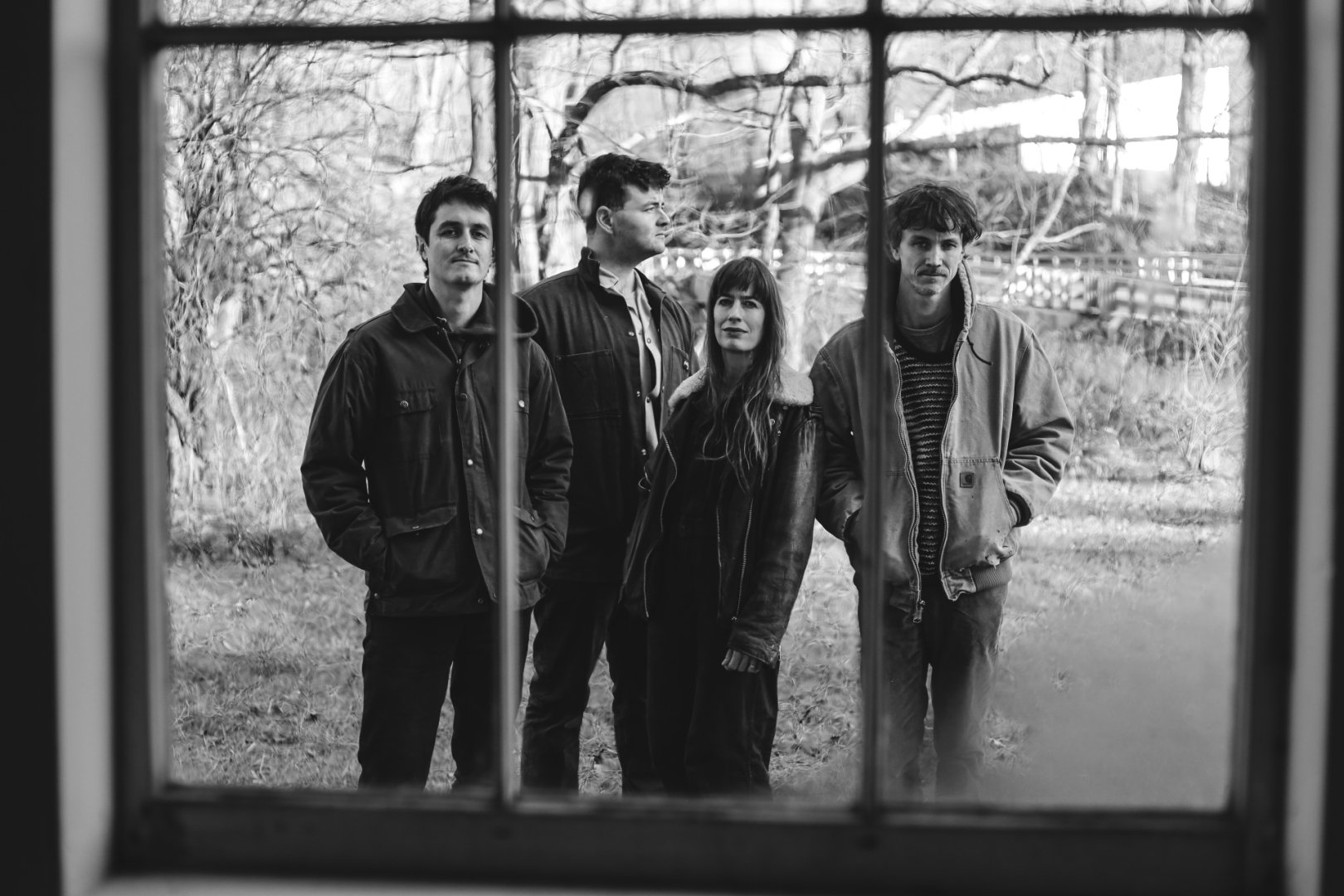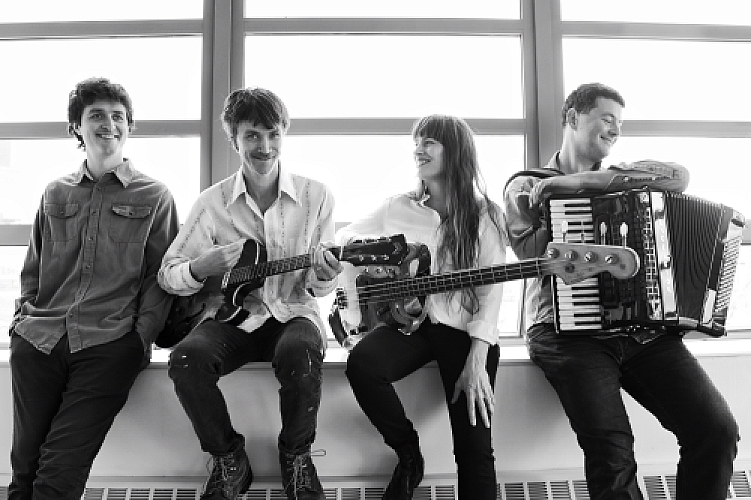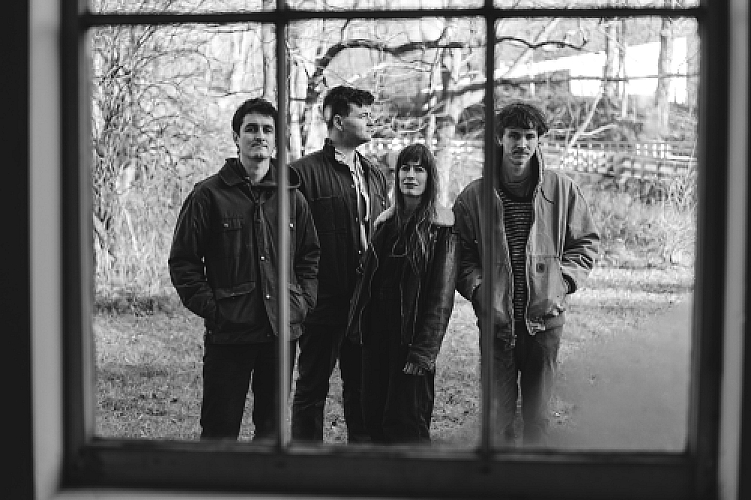In the Valley of Abandoned Songs, hope and joy sit side by side with fear and sorrow. As you stroll amongst the wildflowers and tombstones that dot the landscape, you’ll pass innocence and shame, faith and despair, loneliness and love. You’ll feel the warm glow of the morning sun and the chilling darkness of impenetrable shadow. You’ll slip from the present into the past, from reality into dreams, from life into death and maybe, just maybe, back into life once more.
“There’s a tightrope walk between light and dark in these songs,” says Ian Felice, “between the magical wonder of existence and the ever-present sense of impending doom that comes with it. This album is my way of reconciling those things.”
Valley of Abandoned Songs, The Felice Brothers’ captivating new album and debut release for Conor Oberst’s new Million Stars label, is more than just a personal reckoning, though; it’s a deep and incisive meditation on what makes us human, on the search for meaning and connection as told through the eyes of a wide-ranging cast of misfits and outcasts. There’s the nightclub singer with blood on her hands; the heartbroken drifter watching the world through the slats of a boxcar; the regretful bellhop crying at the Ritz. Each is a loner struggling to find their way through a world that’s both devastatingly cruel and achingly beautiful, a restless searcher with a sharp eye for subtle detail and a penchant for thoughtful reflection. Felice invites us to walk a mile in their shoes—sometimes through the plainspoken narrative voice of a Southern Gothic writer, sometimes through the abstract expressionism of an avant-garde painter or poet—and while the recordings here span a variety of sessions across a period of several years, the result is a remarkably cohesive collection that manages to feel utterly timeless and particularly attuned to the present moment all at once.
“A lot of these songs are amalgamations,” Felice explains. “The settings can change from verse to verse and scene to scene. I don’t necessarily know who these characters are or where they come from, but they all evoke something very real in me.”
That balance of mystery and familiarity has been central to The Felice Brothers’ identity ever since they first emerged from the Hudson Valley nearly two decades ago with a gloriously ramshackle sound that drew on everything from Woody Guthrie and Bob Dylan to Walt Whitman and Flannery O’Connor. In just a few short years, the group went from busking on subway platforms and sidewalks in New York City to playing Radio City Music Hall with Bright Eyes and appearing everywhere from the Newport Folk Festival to Levon Helm’s Midnight Ramble. Beginning with 2007’s Tonight At The Arizona, the band helped pave the way for the modern folk revival, while at the same time challenging its boundaries and conventions with bold sonic experimentation and unyielding integrity. The New York Times likened their music to “the rootsy mysticism of the Band,” while Rolling Stone praised the “scrappiness” of their “folk-rock noir,” and The Guardian hailed their songs as “impeccably crafted, with literary-minded lyrics that are both playful and profound.” Over the course of nine studio albums, the group shared bills with everyone from Old Crow Medicine Show to Mumford & Sons, took their intoxicating live show to Coachella, Bonnaroo, Outside Lands, and countless other festivals across the US and Europe, and backed up Conor Oberst extensively in the studio and on the road.
It was Oberst, in fact, who ensured that Valley of Abandoned Songs received a proper release.
“A few years ago, I started revisiting old demos that had never seen the light of day and recordings that hadn’t found a home on previous albums,” Felice explains, “and I started thinking of them as the Valley of Abandoned Songs. At a certain point, I realized that I had a particular group of tunes that worked really well as an album, and so I shared it with Conor, along with my idea to post it on online, but he immediately texted back that he loved it so much he wanted to start a new record label just to put it out.”
The tracks Felice had pulled together came primarily from sessions for the band’s 2019 album, Undress, as well as their most recent release, 2023’s Asylum On The Hill, both of which were captured live in an 1870s church with the band’s current lineup (Ian on guitar/lead vocals, James Felice on keyboards/vocals, Jesske Hume on bass, and Will Lawrence on drums). The tunes were misfits and outcasts in their own right—some had gone unfinished in the moment, others simply didn’t match the overarching feel or themes of those particular records—and the recordings were left intentionally raw and unvarnished.
“I’ve always been drawn to artists who are willing to pull back the curtain,” Felice reflects. “When there’s that private, unguarded quality, I often find it easier to relate to the work.”
Intimacy has always been a hallmark of The Felice Brothers’ sound (they’ve recorded albums in a chicken coop, after all), but Valley of Abandoned Songs feels more exposed than perhaps anything else in their catalog. That’s not to say the songs aren’t fleshed out here—smoky album opener “Crime Scene Queen” features gospel back-up singers and a lush, full-band arrangement—but the performances are infused with the kind of loose and spontaneous energy that can only come from the act of making art for art’s sake, from being fully and completely immersed in the moment. The breezy “Flowers By The Roadside” finds an almost Buddhist contentment in sitting still and watching the world roll on, while the freewheeling “Younger As The Days Go By” makes peace with how little we ever really know about life, and the enigmatic “New York By Moonlight” finds simple pleasures in unexpected places: a startled flock of pigeons, a prostitute in pastel tights, a plume of exhaust hanging over a damp city street.
Not all residents of the Valley of Abandoned Songs are quite so enamored with their observations, though. The narrators of the galloping “Black Is My True Love’s Hair” and bittersweet “Stranger’s Arms” reckon with the hollow feeling of searching for something that can’t be found; the nursery rhyme nature of tunes like “Birdies” and “Racoon, Rooster And Crow” belies their grim reminders of mortality and loss; and the apocalyptic imagery of tracks like “Let Me Ride Away With The Horsemen” and “It’s Midnight And The Doves Are In Tears” reveals a profound disillusionment with the state of mankind. “From the jawbone of a donkey / To the atom bomb,” Felice sings. “Science and progress / What have you done?”
“There’s a persistence to the cruelty that goes on in this world,” he reflects. “I think the frustration and the pain of it weighs on all of us at times.”
Though his characters feel it acutely, Felice ultimately refuses to surrender to the weight of hopelessness on the record. The tender “Tomorrow Is Just A Dream Away” insists on believing in the possibility of something better, even as our bloody history repeats itself over and over again, and album closer “To Be A Papa” pledges unconditional love in an unpredictable world. “Stay with me / For the road is long / And the winds are strong,” Felice declares. “And I’ll stay with you.”
In the Valley of Abandoned Songs, it turns out, nothing gets abandoned after all.



